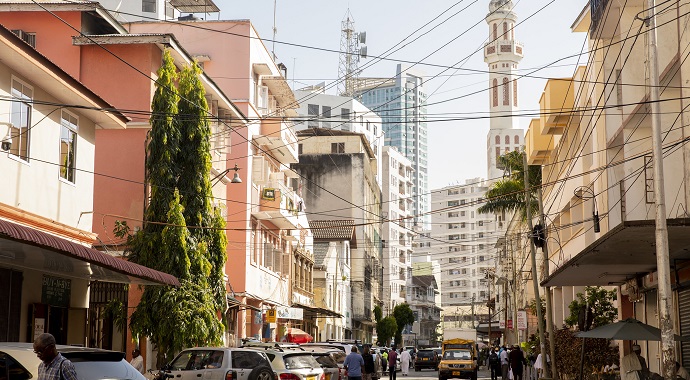Five North African countries—Morocco, Algeria, Tunisia, Mauritania and Libya—make up the Maghreb region, a historic island between seas of water and sand at the far end of the Arab world.
Leaving out Libya, which continues to battle with consistent civil unrest and hasn’t really broken ground in the startup world, and Mauritania, which is relatively small and mostly underdeveloped, startups across the other three nations raised an estimated $72 million in 2021. Algerian startups raised $30 million; Morocco recorded an all-time high of $29 million; and Tunisia closed north of $23 million.
This is a landmark growth from the $20.1 million raised across 19 deals in 2020. But when you break these numbers down into deals and compare them to Egypt’s over $600 million funding in 2021, the conversation on how disturbingly small the funding is comes up. When it comes to venture funding, Egypt has always been North Africa’s leader, capturing up to 80% of investment flows into the region from 2015 to 2021, per Baobab.
However, this is not a question of why Egypt dominates with such a huge margin but why the combined startup funding secured by five nations couldn’t match up with at least a quarter of what their neighbour did. What’s the problem of the Maghreb region, and how can the ecosystem rise to its full potential?
To set the context, the region has several problems that, if not resolved soon, may not only continue to shrink the potential of its burgeoning startup sector but could bury it completely. But here are five reasons funding is low in this region.
Intra-regional conflict
The Maghreb countries don’t see eye-to-eye; they are archenemies or, as they are popularly called, “enemy brothers”. It’s gradually becoming clearer that these nations are incapable of cooperatively forgoing their cat-and-rat history and assembling their social and cultural similarities to achieve greater economic progress.
This enmity continues to subdue the economic potential of the region because each of the countries practices a closed-border policy, which hinders seamless intra-regional trade, especially between Morocco and Algeria. These two nations arguably hold the key to the region’s prosperity but have instead contributed the most to its misfortune.
Due to the hostile intra-regional trade culture, it’s difficult for startups to project growth in terms of expansion across the Maghreb. That means it’ll be difficult for a Moroccan company to expand into the Algerian market.

A 100-kilometer fence along the Morocco-Algeria border built by the Moroccan government
For example, when Chari, a Moroccan startup that helps retailers access consumer products faster and cheaper, wanted to expand into Tunisia, it had to set up an entirely new company that has no ties with the mother company apart from the name and business model.
“We had to start another company in Tunisia, with all the paperwork. We had to also hire a new general manager and local team, and basically duplicate the company in Tunisia,” said Ismael Belkhayat, co-founder and CEO at Chari. “So we don’t handle Tunisia from Morocco; our Tunisia operation is independent.”
This shows that there is no business exchange between the countries; there is no unified environment, which means there are no real regional markets. How do you then pitch an investor to back a venture that operates in a broken market like the Maghreb?
Hostile bureaucracy
Surprisingly, countries in the Maghreb region aren’t completely in disagreement with one other. They all have something in common: a heavy and killer administrative process. Across the region, there’s an administrative office called Office des Changes, a bureau that regulates all monetary transactions. The body monitors money that comes in and goes out of each country.
Here’s how it works: as a startup, you can’t do as little as spend on Google or Facebook Ads without consulting the bureau. If you want to advertise on Google or Facebook, you either need to pay a local tax or get special authorisation to spend money outside Morocco or Algeria or Tunisia. This isn’t only applicable outside of the Maghreb but also within it.
Hence, local companies mostly consume local services and not foreign. Therefore, it is more difficult to leverage sophisticated tools to drive growth or even maintain operations across the board—the bureau has made sure of that. Imagine not being able to use Trello or Slack because your country won’t allow you to subscribe to them without charging your purse dry.
This same principle is applicable to investors. It’s a tad difficult and expensive to pull out your funds after investing in the Maghreb region; you must pay a great chunk of tax to the bureau. All of this rigid bureaucracy makes it difficult for startups in the region to pull foreign investment.
The big don’t trust the small
The Maghreb tech ecosystem is an unusual one, and startups are literally on their own. In Nigeria, for instance, big conventional banks back fintech startups, and FMCGs invest in e-commerce and logistic upstarts.
It’s not like that in the North African region.
Big local companies mistrust startups, mostly because of how easy it is for startups to shut down in the region. For them to trust, back and also, maybe, provide seed “market” (goods supplies), you must have at least a two-years track record.
The irony is, if nobody is ready to back a green early-stage company, how will it survive and be around for the two-year mark? It’s a vicious cycle that puts startups in a very tight corner because it seems everything is designed to kill them. How can foreign investors trust a brand or product that potential local investors won’t back?
Lack of fintech innovation
This wouldn’t have been a reason if Africa had not experienced the power of fintech. Startups that play in this space attract big-cheque investors. Across the four biggest African tech hubs—Nigeria, Kenya, South Africa, and Egypt—fintech attracts the biggest funding. Even in Egypt, where logistics and e-commerce attracted more funding, the $120 million investment secured by MNT-Halan, a fintech company, remains its biggest single deal till today.
When you move up west, the absence of fintech starts to show. Noureddine Tayebi, founder and CEO of Yassir, an Algeria-originated Maghreb-focused logistic company that raised all the $30 million for Algeria, confirmed to TechCabal over a call that — even though his company is active towards building a fintech product that will support their business— there are currently no fintech solutions in Algeria. Belkhayat also said the same about Morocco, though he mentioned that Tunisia has a few like Paymee, which he was sure will likely survive because of the supportive startup act the country enacted in 2018.
Both local and foreign investors are bullish on fintech startups, especially in Africa, and going by trends from the last five years, it’s expected that entrepreneurs in the Maghreb countries will double down on fintech and court investors for more investments.
However, Belkhayat thinks for a fintech to actually scale, it needs enough capital that is mostly not available to their startups at the early stage. This may be another reason why these countries will be stuck with cash going forward.
Language barrier
The Maghreb region speaks French and that makes it a francophone region. According to Belkhayat, most of the available foreign investors communicate in English, so a founder who can’t speak English talking to an investor who doesn’t understand nor speaks French is already disadvantaged.
“Most VC funds are based in countries where people speak English, compared to French-speaking countries. Therefore, it’s more complicated for us to raise money than the anglophones,” said Belkhayat.
Before 2021, venture funding in francophone African countries was extremely low, with Morocco and Tunisia being the leaders per investment. But this year, Senegal took the lead after fintech startup Wave raised a record $200 million Series A. Apart from this deal, VC funding activity remained pretty much subdued in the region last year.
Also, both Belkhayat, his co-founder Sophia Alj and Tayebi are American-trained businessmen who have worked with top American organisations and understand the languages of the investors. Niama El Bassunie—the founder/CEO at Waystocap, another Morrocan e-commerce business that was acquired by Egypt-based Fawry—is also a UK-trained and based expert. So when you zoom in, it becomes clearer why their companies were able to raise enough capital, unlike others.
These are the struggles every Maghrebian startup faces while trying to raise foreign investment. Most importantly, the intra-region conflict that has led to lack of business exchange has to be fixed. Once that’s solved, just like a domino effect, every other thing should gradually fall in place.





















